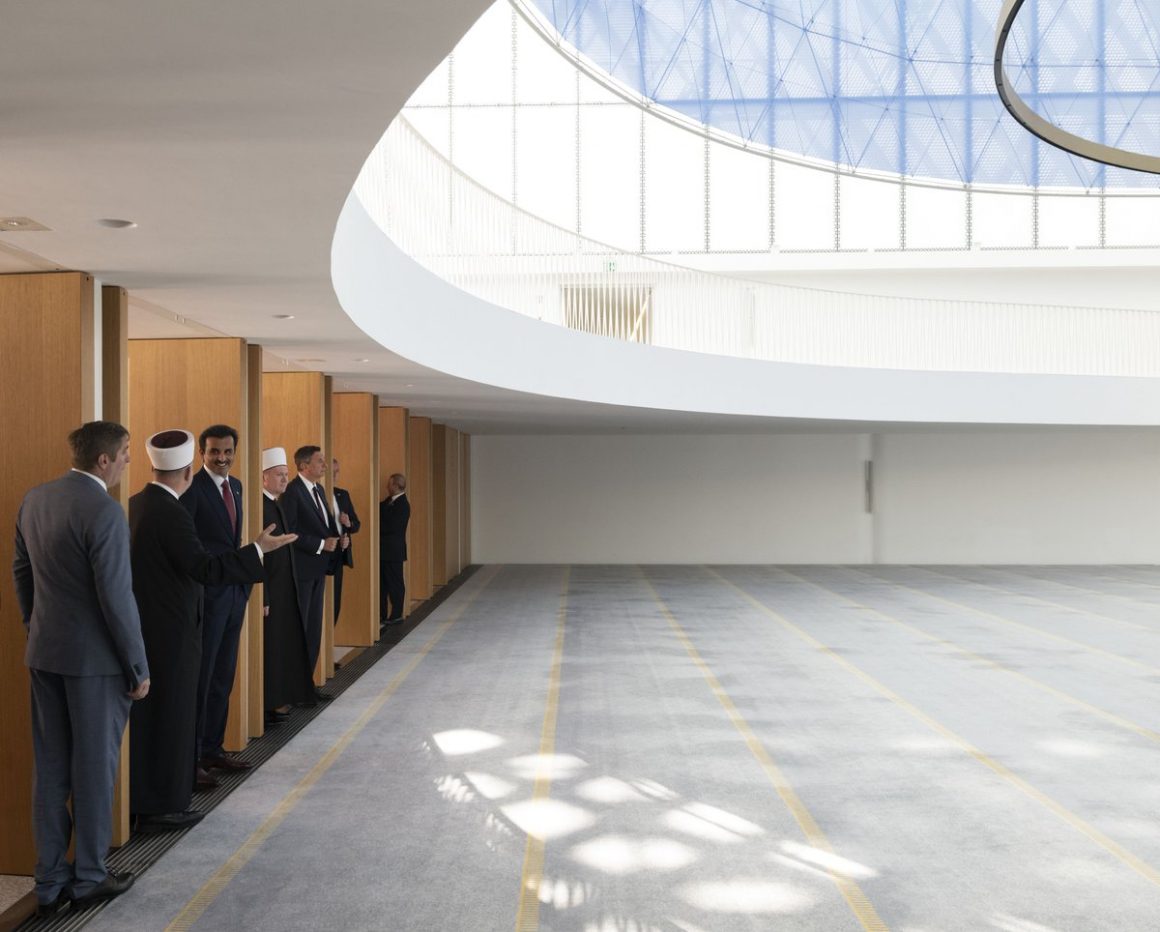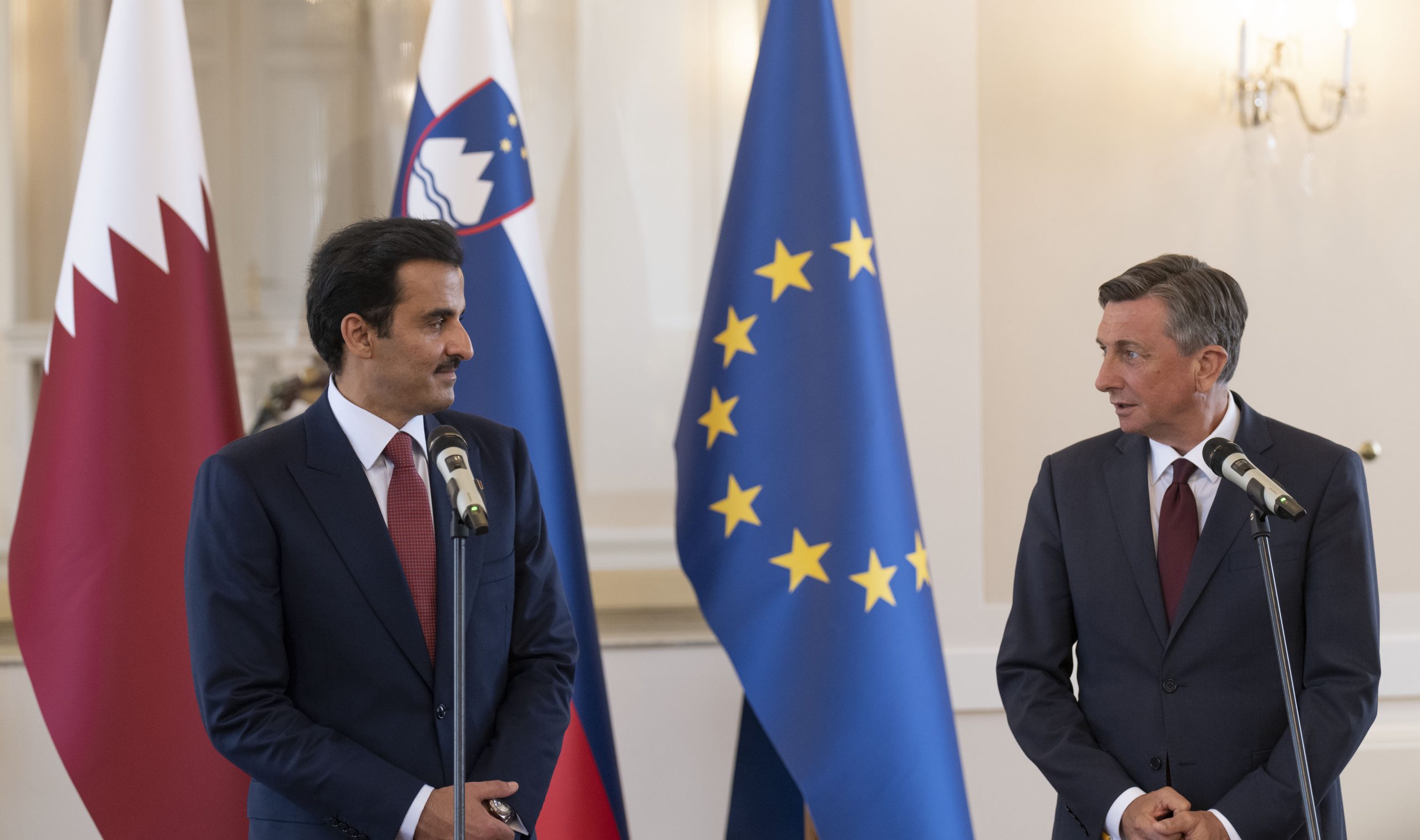The Amir’s visit to Slovenia coincides with the 30th anniversary of Qatar and Slovenia’s diplomatic relations.
The Amir, Sheikh Tamim bin Hamad Al Thani met with the Slovenian president to discuss bilateral ties and potential energy cooperation between their respective countries.
A Memorandum of Understanding between Qatar Holding and Spirit Agency to encourage entrepreneurship, foreign investments, and technology in Slovenia was signed.
The proportion of foreign investments in Slovenia has surged up to 8 percent annually in the last ten years, in addition to the tax reduction for investors by 40 percent, the Slovenian Deputy Prime Minister and Minister of Economic Development and Technology noted.
The Ambassador of Qatar to the Republic of Slovenia, Sultan bin Salmeen Al Mansouri, affirmed that Doha and Ljubljana are working to boost trade exchange, which currently stands at 31 million euros, a figure that is not sizing up to the bilateral relations between the two countries, due to the hampering effect of the Covid-19 pandemic.
He expressed hope that this trade ties will “double” during the coming period.
The trade volume between the two countries amounted to approximately 14 million euros in 2020 and increased by more than 100 percent within one year, Head of Department for Africa and Middle-East Natalia Al Mansour confirmed.
Qatar’s Minister of Commerce and Industry underlined Qatar’s goal on furthering new levels of cooperation with Slovenia in many significant sectors, including food security, agriculture, industry, technology, infrastructure and tourism.
During this diplomatic tour, the Amir began his journey with Iran, followed by Turkey, Slovenia, and has now arrived in Spain. His extensive trip to the EU and United Kingdom will mainly focus on liquefied natural gas and energy security.
Qatar’s Amir arrived in Ljubljana on Sunday on a two-day official visit where, according to local Slovenian media, topic of gas supplies was high on the agenda.
His trip to the European country comes less than two months after President Borut Pahor visited Qatar, accompanied by a government delegation to discuss the prospects of the oil-rich country potentially supplying oil to Slovenia as the latter is heavily dependent on Russian gas.
Russia provides most of Slovenia’s natural gas, which accounts for 12 percent of the country’s overall energy consumption. Ljubljana uses approximately 0.8 billion cubic meters of gas annually.
Western stance on Russian gas
With energy security becoming a rising international concern in recent months as the war persists between Russia and Ukraine, European countries have introduced a series of sanctions targeting individuals, banks, businesses and major state-owned enterprises, and exports, among others.
The United States has banned all Russian oil and gas imports, while the UK will phase out Moscow oil imports by the end of this year.
As for Germany, it has paused plans for the opening of the offshore Nord Stream 2 gas pipeline from Russia, which runs under the Baltic Sea connected from Russia to Germany.
The EU has also said it aims to terminate Russian coal imports by August 2022.
During his two day visit to Doha in late March, there were talks that Qatar could possibly deliver two ships of natural gas to Slovenia yearly through the floating Krk LNG terminal in Croatia, reports said.
Opening of Islamic Centre
During his stay in the Slovenian capital, the Amir witnessed the inauguration of the Islamic Center in Ljubljana on Monday.

Sheikh Tamim and the Slovenian president unveiled the “Friendship Chair”, which includes a metal plate bearing the name of the Amir and the name of the European top state official, in the centre’s garden.
The centre is a testament to “spreading Islamic values and promoting moderate principles,” Qatar News Agency reported.
The launching of the mosque came after nearly a century of Muslim presence in the central European country. It also comes following 50 years after submitting a request to the local authorities for permission to build a house of worship and a cultural centre that reflects the Muslim.
It is seen as a medium to enhance their population of nearly 88,000 people, that’s 3 percent Muslims in the Slovenian population, properly integrate in the country.
Director of the centre, Harris Mortajek, saaid that work on the mosque began in 2008, with Qatar contributing 28 million euros out of the total 35 million euros to build it. The rest was donated by the people of Slovenia along with this assistance provided by the Gulf country, which made the centre shape into reality on ground.







